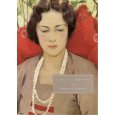Coming Across a New Writer

I well remember how I first came across the work of that fine novelist, Elizabeth Taylor, when I picked up an old Penguin copy of A VIEW OF THE HARBOUR in Austin’s furniture repository and idly leafed through it. I was caught by it and that copy -for which I seem to recall I paid 25p – is on my book shelf along with nearly all her other books
Rarely these days do I come across a writer by chance. So much of what I read has been chosen by my book group, or has been mentioned in a review, has been recommended by someone whose judgement I trust, or is by someone whose writing I already enjoy.
However just recently I did come across a writer by chance – and what a writer. I found Dorothy Whipple on the trolley of books waiting to be shelved in the Fiction section at the London Library. I always like to see what other people are reading and often pick something more or less at random and turn over a few pages. This time I ended up coming home with SOMEONE AT A DISTANCE, first published in 1953 and reprinted by the admirable Persephone Books in 1999 with a preface by Nina Bawden. The preface begins: ‘The writing of fiction is a dreadful trade. Critical assessment can be capricious; publishers uncertain: good books perish; bad ones thrive; worldwide bestsellers can sink without trace.’ Plus ça change . . . Dorothy Whipple is one of those writers, once popular and well-regarded, who became deeply unfashionable and fell out of favour.
To be honest, I wasn’t sure about SOMEONE AT A DISTANCE at first – was the style a little too straightforward, even a little naive at times? – but I read on, somehow gripped almost in spite of myself. And I ended by wanting the novel to go on and on, and by wondering how on earth she had managed to make these people and their predicaments so real. The story is a simple one about a marriage that seems at first unassailable and how it is gradually undermined. Ellen, the wife, has really no idea how happy she has been until it is over. Whipple’s description of their lost companionship is masterly: ‘A happily married woman acquires the habit of referring everything to, discussing everything with, her husband. Like bad coal, for instance. To be able to say, sitting across the hearth from him in the evening: “Isn’t this coal bad?” and to hear him say, looking up from his book at the fire: “Awful. Sheer slate,” is to have something comfortable made out of even bad coal.’
When the shipwreck comes, Ellen goes for comfort to her elderly friend, Mrs Brockington, who lives in a residential hotel with other old ladies. ‘In the dining room, where the shutters were closed against the night and the lamps on the tables on the table lit under rosy shades, the old ladies waited to be served . . . There was no avid curiosity, no malicious speculation, no self-congratulation that such a thing couldn’t happen to them, as there might have been among younger women . . . time had softened them, they had learnt something from loss, helplessness, loneliness: they knew that almost anything can happen to anybody . . . So they tried, without a word, to show Ellen they were glad to have her there; and were almost proud that she should seek refuge among them on this bad day in her life.’ They knew that almost anything can happen to anyone. Wonderful. Nina Bawden describes Dorothy Whipple as ‘if not a great writer, a remarkably good one.’ I agree and I’m going to get the rest of her books out next time I’m in the London Library.
2 Comments
lyn
June 17, 2011I love Dorothy Whipple’s books & I’m so pleased Persephone rediscovered her. I think my favourites are They Were Sisters & High Wages. I hope you continue to enjoy her books.
Christine
June 20, 2011Thanks, Lyn. I will go for these next – and will blog about how I get on.